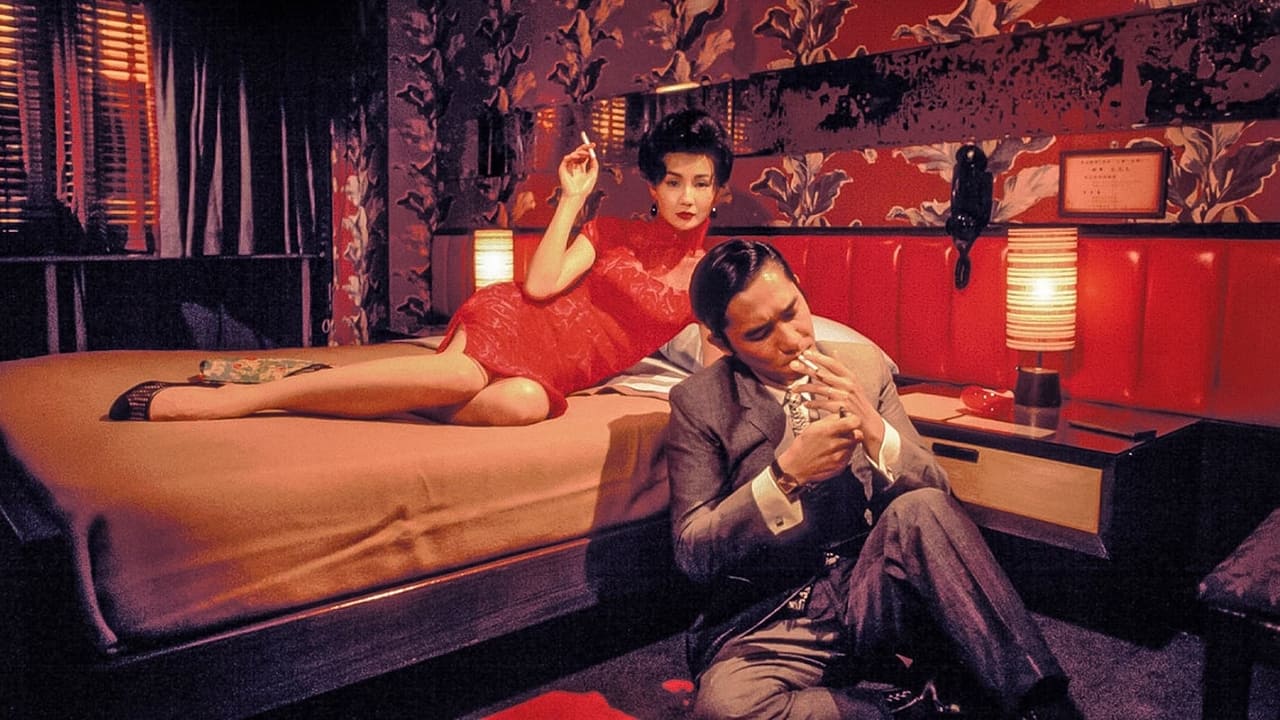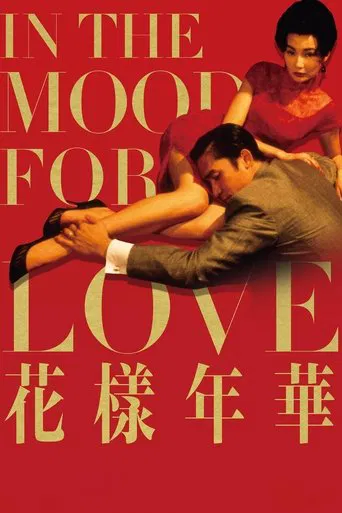

Clever, believable, and super fun to watch. It totally has replay value.
... View MoreEasily the biggest piece of Right wing non sense propaganda I ever saw.
... View MoreThis is a gorgeous movie made by a gorgeous spirit.
... View MoreThere is, somehow, an interesting story here, as well as some good acting. There are also some good scenes
... View MoreIt's truely a wonderful artistic work by Wong as usual!
... View MoreElegantly crafted, mesmerisingly told & brilliantly performed, In the Mood for Love is a fascinating example of restrained craftsmanship that paints one of the most enchanting, alluring & powerfully evocative portraits of love & romance on the film canvas and is further uplifted by its wonderfully detailed period setting, awe-inspiring photography & spot-on chemistry between its leads.Set in 1960s Hong Kong, In the Mood for Love follows the lives of two neighbours, a man & woman who find solace in each other's company after suspecting that their spouses are cheating on them. A beautiful relationship blossoms between the two as they spend more time together and attempt to reenact how their partners' affair must have begun but decide to keep their bond platonic.Written, produced & directed by Wong Kar-wai, the movie allows ample space for its characters to breathe and the bond that develops between the two isn't hurried either as Wong establishes their similar predicament first, while little details such as coincidental interactions & fleeting glances on a daily basis give their budding relationship a genuine touch & natural feel. And their well-defined arcs only helps the cause.The 1960s Hong Kong setting is expertly brought to life by its detailed set pieces & wisely chosen shooting locations. Camera follows our characters around like a silent observer and is thoroughly focused on their activities, however, what stands out are the brief slow-mo vignettes of their lives which is accompanied by a specific track that makes those particular sequences more memorable while enriching the overall experience.Coming to the performances, In the Mood for Love is steered by compelling inputs from Maggie Cheung & Tony Leung, and the sizzling chemistry between the two is the real highlight that makes their romance work so effortlessly. Both actors bring their A-game to the table and challenge each other to up their acts, while the emotional rush & sexual tension that's evident every time they are together makes their on-screen bond more authentic.On an overall scale, In the Mood for Love is a teasing, tempting & transporting illustration of love, longing & loneliness that brims with irresistible charm and radiates endless warmth from start to finish. Presenting Wong Kar-wai in total control of his craft, photographed with an aesthetic eye, and strengthened by measured performances, it is a masterly rendered love story that stumbles a little in its final act but its universal appeal & artistic approach is enough to catapult it into its genre's finest works. Definitely recommended.
... View MoreThis movie tells a simple tale: a woman and a man whose spouses have an affair come to each other for consolation. They slowly develop feelings, but decide to part in the end all for the greater good. However, what makes this movie such a masterpiece does not lie in the story, but rather in its effortless capability to convey emotions and mood. We are put in the main characters' perspectives throughout the movie.The characters' desire, pain, empathy and connection can be felt through still images and camera movements. Every frame tells its own story. The long, silent shots create a sense of longing and loneliness. Subtle body movements - sideways glances, slowly intertwined hands, the way they weigh their questions and drop their eyes or repetitive actions and conversations are never boring, because they make the audiences yearn for more.This movie is utterly delicate, beautifully layered, masterfully crafted to be brimful with feelings. It is slow-burnt with little actions and offers no resolution; but remain one of my most favorite romantic movies of all time for its lush cinematography and the way it tells a tale of noble unrequited love that could have been, but never was.
... View MoreThe slow-moving, slow building, simply-lit and simply set, but beautiful shots are absolutely amazing to behold in this romantic film. It's a love story, that is just as much in love with itself, as the characters are with each other. It captures forbidden love, and betrayal of love, in it's most visual essence. Also, If you ever wondered where the idea for the whisper at the end of Lost in Translation comes from, it's this film. The end of this film is however, arguably more magnificent.
... View More